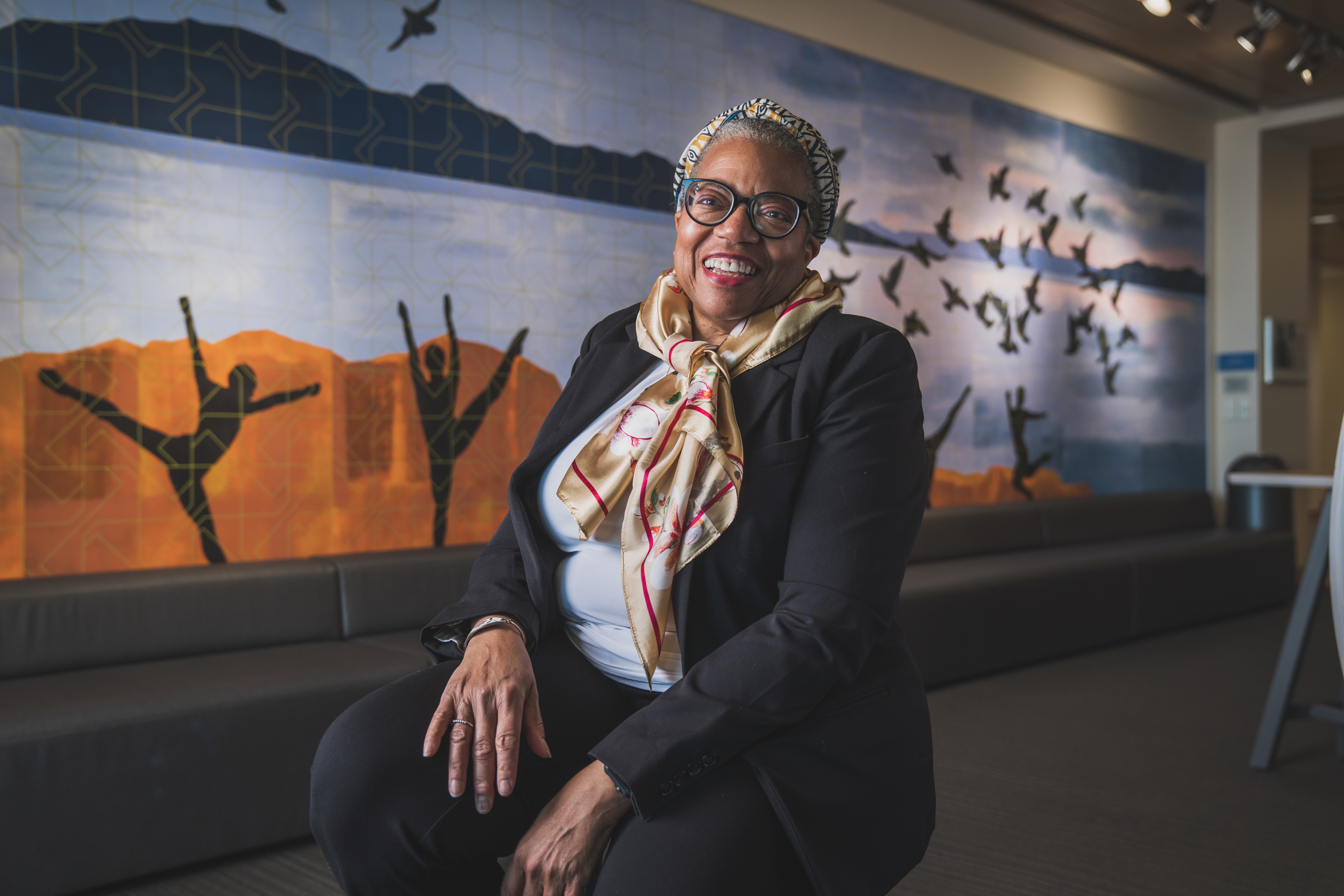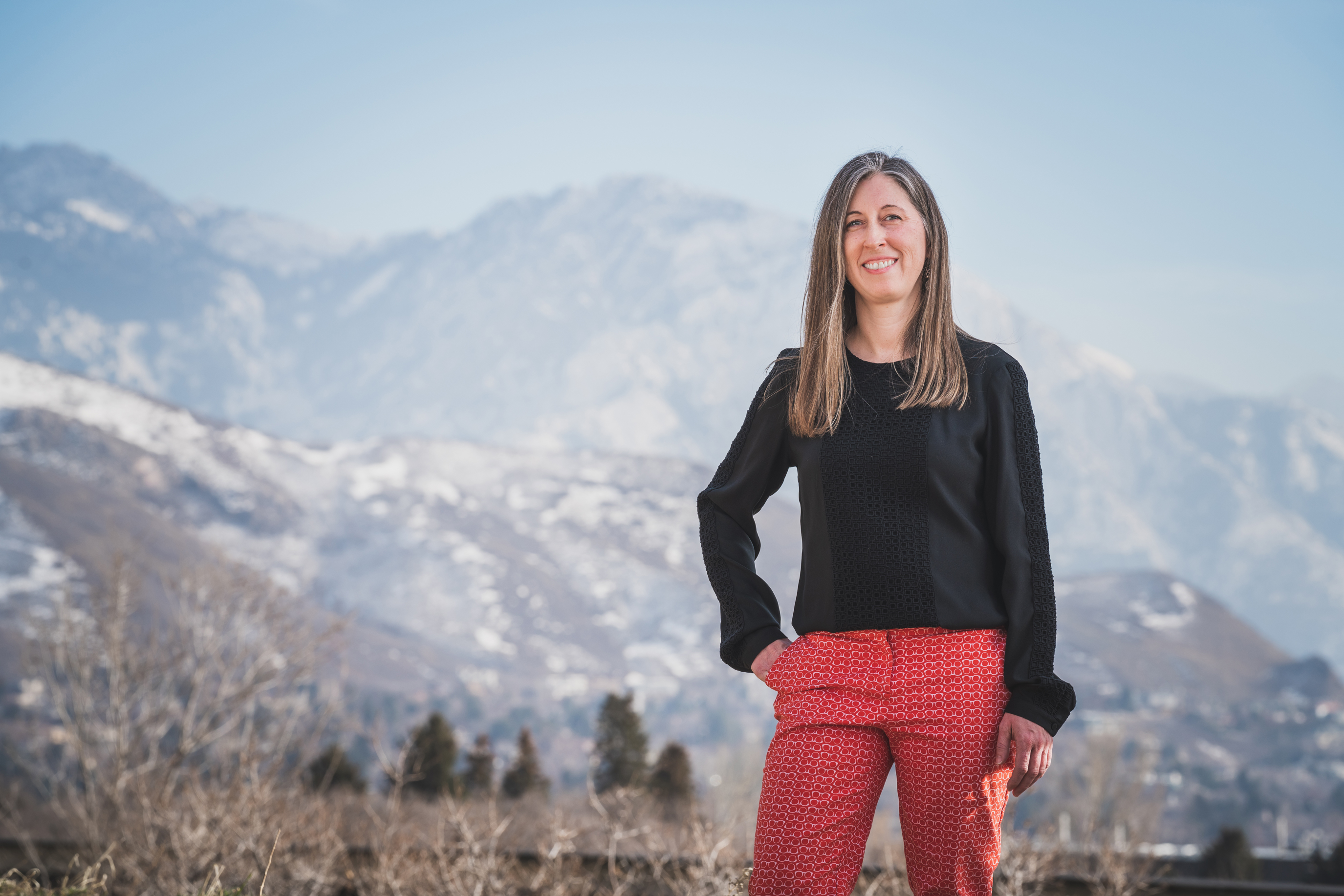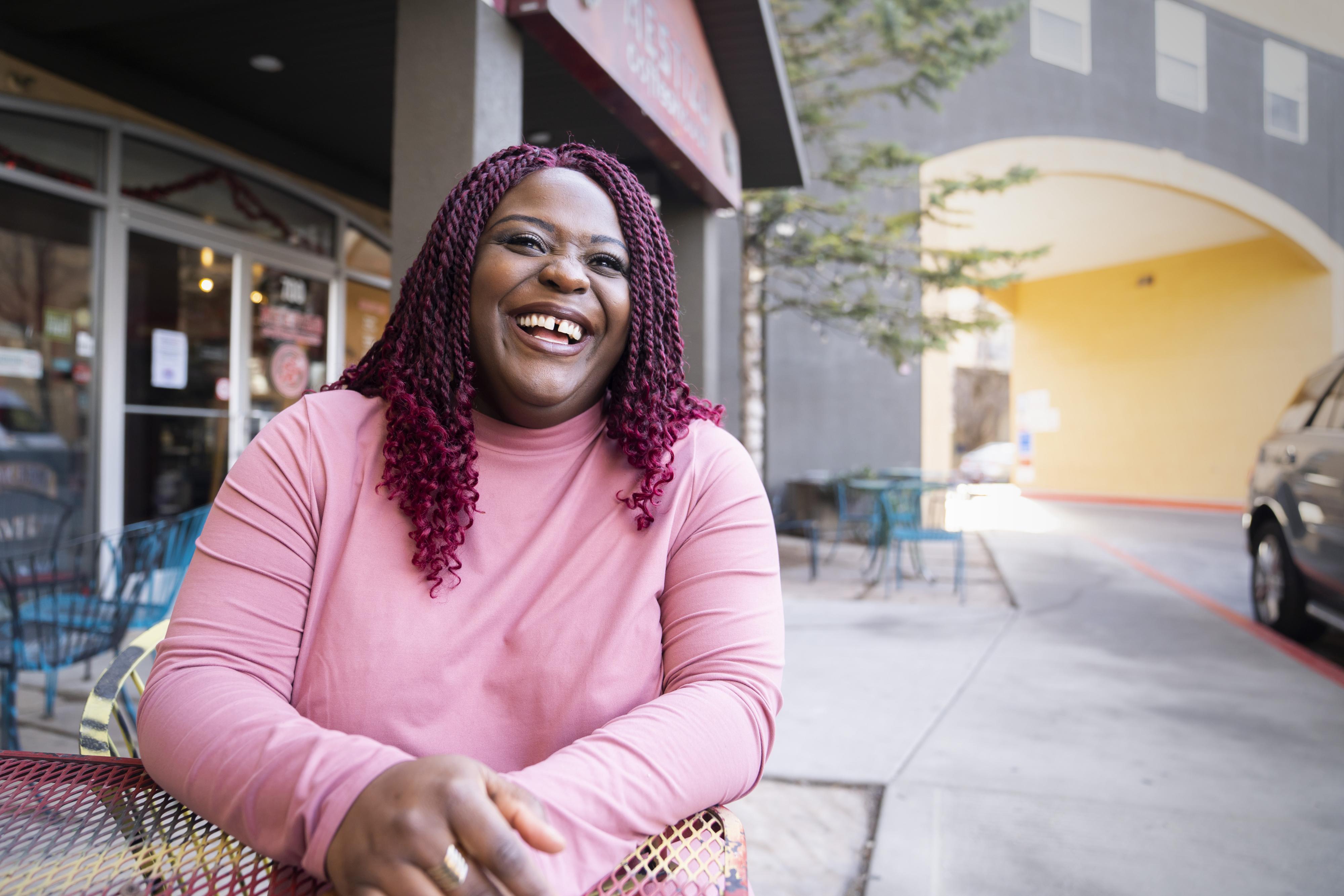
How did your EDI journey begin?
I first became vocal about EDI issues in high school, where I felt it was really important to have these conversations with my immediate family and community.
Living as an Arab Muslim in America with immigrant parents, my family felt that we needed to hide our cultural identity and assimilate in order to be accepted. They were concerned that being authentically ourselves was going to hinder us. And it did. My mom lost jobs because her accent was too thick. My dad and uncle anglicized their names after the oil embargo in the 1970s created less favorable feelings toward Arabs in America.
It was this “othering” that made it really uncomfortable to navigate spaces on someone else’s terms. I felt like I was never understood. My rebellion became trying to live authentically and allow those around me to live their truth as well. That’s the spirit of EDI I’ve tried to employ in my work over the years.
What does that look like for you at the Eccles Health Sciences Library?
EDI wasn’t even part of my original job description! It started with cultural awareness—highlighting holidays that aren’t nationally recognized, creating programming and events, while also addressing subjects like bias and racism.
We have a History of Medicine collection featuring books from the 1800s that contain some heinous, ignorant content. Rather than saying, “These are really upsetting, let’s hide these,” I chose to use them as a teaching tool and a learning opportunity. Two hundred years is not that long ago. A lot of the biases and ideas from these books still linger, and it’s important that we address them and bring them to light.
Has that history changed very much?
Unfortunately, libraries in general—whether academic, medical, or public—are still overwhelmingly white and female spaces. There is some progress being made, but there’s a lot of work to be done. I think something as simple as me showing up in these spaces and reminding people that there are individuals of color here makes a difference. My presence says, “Hi. I’m a multi-faceted, hardworking person. I’m not Christian. I’m not White. I celebrate a whole different set of holidays. Want to learn about them?”
It’s also important to me that I give a different representation of Arab Muslims than what’s shown in the media or news. Muslims only make up around one percent of the US population, so it’s unlikely that my colleagues or students have any close Muslim friends. I can be a representation they might not be aware of. I was once the head of the public services department, so I’d stand at the front desk and was the face of the library when people entered. I hope that seeing someone like me there sent a pretty powerful message of inclusion.
That is powerful. What other projects are you proud of?
My first goal was to change the part-time desk staff positions to increase diversity and reduce our turnover rates. We started by changing the job description to focus on how student applicants would stand to benefit, rather than what we as an employer needed. It included questions like: “Do you like working with people? Do you want to build research skills? Do you want to play with technology like 3D printers?” We think of it as a partnership where we can help them grow.
Since we changed the description, staff went from staying just one semester to an average of two to four years. And they came from more diverse backgrounds too—from different racial groups, studying in different majors—because they saw themselves as a valued part of the library before they even applied.
We work hard on retention. I spend a lot of time cultivating good relationships and being amenable to things like school schedules and final exams, because their education has to come first. This phase of their life is so complex—they’re juggling newfound independence, school, a job, relationships, a social life. I give them a lot of grace.
My other achievements are relatively small ones... providing free menstrual products in all bathrooms, becoming a distributer of Naloxone kits so medical students and professionals can have them on hand. The little things matter, though. They [students and staff] can see the library as a resource outside of education where they can ask questions and request things they need. That’s huge.
What’s keeping people from accessing these resources?
Our biggest barrier is the barrier to good information. There’s almost always a paywall to access articles, and that’s an obstacle for students and researchers trying to give the best care for their patients. Unfortunately, most journals are owned by large publishers who profit off of these paywalls. They’ve created a monopoly on good information. But many libraries are fighting for open access by covering publishing costs—over half of our operating budget goes to these costs. We also do interlibrary loans with other institutions to share the access we do have.
Does misinformation come into play at all?
Absolutely. Librarians have a huge problem with misinformation because that content is free and readily available. If you’re sick, you’re not going to MedlinePlus, which is vetted through the National Library of Medicine in the National Institutes of Health. You’re going to WebMD or Healthline because it’s free, but you can’t be sure of the quality of the advice you get.
This is a problem politically as well. I teach an information literacy course where I ask students: “How many ‘health experts’ do you follow on Instagram? Do you ever check to see if they are a licensed dietician or therapist? How are you vetting the information they give you?” Just encouraging them to be more diligent about their sources.
Ultimately, if you’re a part of the community—whether or not you work or study here—and want access to resources, all you have to do is come into the library and we’ll help you.
What’s the most fulfilling part of EDI work for you? The most frustrating?
The most frustrating part is the administrative aspect: all the policies, procedures, and paperwork. I just want to get out there and do the work! By far the best part is seeing the product of it all. Starting with an idea, getting everyone together, gathering what we need, and seeing that process come to fruition.
Even as I call it frustrating, there’s a real value in it. When I started this position, I depended on the documentation provided by those before me, and the policies we create will continue to live on in the culture of the library. In 10 years, I may not be here, but I’d like to believe I’m setting the groundwork for the next leader to build upon.

Associate Professor and Associate Dean for Equity, Diversity, & Inclusion at the College of Nursing

Assistant Dean for Equity, Diversity, and Inclusion at the College of Pharmacy

Associate Director of Equity, Diversity, & Inclusion at Huntsman Cancer Institute (HCI)